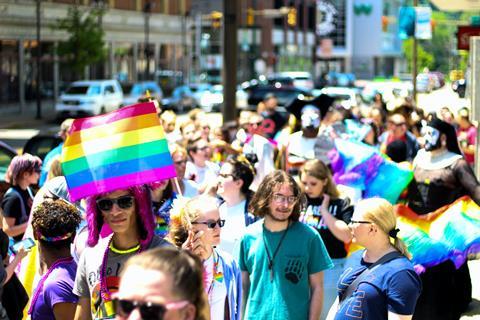With same-sex marriage and LGBTQI+ relationships at the forefront of conversation in the Church of England, Sarah Molyneux-Hetherington shares why she thinks we need to carefully consider the high cost of allowing people to feel excluded.

Contemporary discussions concerning sexuality and human identity often come down to a debate on the meaning of certain passages or about the fruit that is visible in the lives of different people. Most people come away holding the same position they did before but with a lot of hurt and frustration. I could talk, for example, about how I came to accept that I’m pansexual and the impact on my faith; but, if I am honest, my own life is not actually what motivates me to speak in support of LGBTQI+ lives and relationships. What convicts me are the stories of loss.
Stories like Lizzie’s. Lizzie was part of a bustling happy church and her parents loved her unconditionally. Lizzie believed she may be a lesbian and that she would be rejected by her church, family and ultimately God because of this. This belief was so haunting and Lizzie was so terrified that at the tender age of 14, she took her own life.
Romans 8:38-39 sayd: “For I am convinced that neither death nor life, neither angels nor demons, neither the present nor the future, nor any powers, neither height nor depth, nor anything else in all creation, will be able to separate us from the love of God that is in Christ Jesus our Lord.”
So many LGBTQI+ people believe that God cannot love them because of what they’ve been told and what they now believe about God.
Nothing is able to separate us from the love of God. Nothing. Yet for so many LGBTQI+ people, perhaps especially young people, they believe at the core of their being that God cannot love them because of what they’ve been told and what they now believe about God. This belief is so terrifying, so destructive, that it leads them to take their own lives. The prospect of living their life, whether they imagine that life as being one of celibacy or of being in a relationship or even that this is something they can be healed of, is perceived in such a way that suicide seems the only option remaining. How damning that an iteration of the gospel of Jesus Christ can lead to such a tragedy. Jesus said that he came to bring us life and life in all its fullness. Yet for so many people, the church’s belief on LGBTQI+ issues have led to hurt, trauma and tragedy.
When I started in church leadership, I made a promise to myself that I would do everything I could to never have to bury a child who believed that they could be separated from the love of God. That I would never have to look a mother in the eye as I discussed the funeral arrangements for their LGBTQI+ child. But instead, everyone I meet would know that there is a place for them at God’s table, that they are known and loved.
We need to recognise that the debate on LGBTQI+ inclusion is not neutral and it is not equal. There are strong feelings involved. I recognise that there are many people that would be deeply grieved if the church at large included and indeed celebrated LGBTQI+ folk in all areas of church life. There would be people who would feel deeply betrayed by the church they have given much of their lives to. However, no one will die.
I made a promise to myself that I would do everything I could to never have to bury a child who believed that they could be separated from the love of God.
We might ask what the cost of inclusion is? Of allowing some priests to say some prayers of blessing for some couples as the Church of England has voted this week? I am not convinced by the argument that it devalues the sanctity of other people’s marriage or their celibacy. But even assuming that it does, if that is the cost, that cost has not caused someone to believe they can be separated from the love of God - to the point of death.
What is the cost of inclusion? Because our exclusion is costing lives.































4 Readers' comments